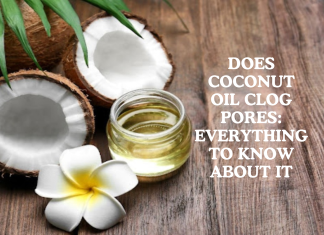So you guys need a water softener for your house, and you are looking for a water softener that is efficient and reliable enough to fulfill the needs of soft water for your family. Find about the Water Softener Size and which one is best for your home.
Then you are in the right place because you gotta know which water softener is the best and suits your home needs.
The best water softener provides greater efficiency with minimal use of salt and energy.
Before we start, you must note some points that too small water softeners run short of water and they require reduced water pressure and these softeners have a reduced service life as well which means it frequently asks for service.
Whereas way too big water softener could also trouble you a lot which should be taken into account…
Let’s jump into the discussion, which water softener size is best for your family…. You all must know it!
Enlightening you guys with the things you should be knowledgable about.
Content Summary
5 Factors You Need to Know
- Flow Rates
- Water Volume
- Water Quality
- System Capacity
- Regeneration Frequency
Flow Rate Requirements
How much your family could need water at different places at a time?
Could your family just use a bathtub, doing dishes and 2 sinks running at a single time?
Flow rates are typically being measured using a measure of gallons per minute (GPM). It’s critical not to stunt the water softener usage when it literally brings to flow rates.
If your water softener size is small then you must try and use excessive fixtures at a single time, you will encounter some really noticeable drop in water pressure usually followed up by hard water.
A well-designed water softener system integrates the internal diameter of the control valve, distribution system, bypass valve, mineral tank, as well as the volume and type of ion exchange softening resin.
The combination of the above-mentioned components will determine the support for the water softener’s flow rate.
Water Quality
Water softeners are employed for the removal of dissolved minerals like calcium and magnesium.
Calcium and magnesium ions are measured as gpg (grains per gallon) while the iron is taken as parts per million (ppm).
While sizing a water softener for your desired needs, convert the measurement of all these mineral ions to grains per gallon (gpg).
Water Volume
Folks do you know the water needs of your family? How many litters of water your family uses?
If you have a big family then the water needs for the domestic and washing purpose merely increases.
The average water use for domestic purposes is 75 gallons per day per person (75gpd/person).
4 People X 75 Gallons per day = 300 gallons per day.
So it means that 4 people would use 300gps/4persons. And hard water increases the water consumption along with it long showers are also responsible for it.
System Capacity
Water softeners are capable of softening your hard water because of the plastic beads present in the system. These small plastic beads are also called as ion-exchange resin as the process continues to replace calcium and magnesium ions with sodium ions.
These plastic resin beads efficiently remove hard-water minerals by pulling them out of the water acting as a magnet.
A water softener could remove the hard-water minerals according to their cleaning capacity, the capacity relies on the quantity of resin dwelling in the unit.
Water Softener’s Capacity = 1 cubic foot of plastic resin beads could generally pull out 32,310 grains of hard water minerals from the water (Iron, magnesium and manganese, calcium).
Once your water softener reaches its capacity then your system will stop softening your water. The resin beads would be covered up with minerals, and the water softener now needs a cleanup as the capacity has been reached.
Regeneration Frequency
Your automobile needs service, right? Because the mechanical components demand so, like your vehicles, water softeners need service too.
Water Softeners are not even different from your automobiles. During the service of your water softener, water flows and rinses through the system.
Metered water softeners help you out to measure the quantity of water used for the regeneration process.
A water softener that is undersized would be regenerated frequently, and it reduces the lifespan of the mechanical components of the water softener.
Conclusion
In my opinion the worthy water softeners maximize the capacity for water softening but diminish the salt, energy and water usage during the processes.
After a clear understanding at your end, the resulting number of grains to the proportion of salt you’ll be employ would be leading to the best energy-efficient and cost-efficient water softeners.









